St. Rose Convent and Villa St. Joseph
FSPA Land Acknowledgment
FSPA acknowledges that St. Rose Convent occupies the unceded ancestral and traditional land of the Ho-Chunk. We understand that our organization and our city were founded upon the exclusions and erasures of many Indigenous peoples, including the Sauk and Meskwaki, and the Ochethi Sakowin who frequented La Crosse, and we vow to work towards dismantling the ongoing legacies of settler colonialism. But we realize that saying this only has meaning when coupled with the development of authentic relationships and sustained action. We therefore pledge to move beyond mere words and to develop programs, policies and actions that fully embody our commitment to indigenous rights and cultural equity. We affirm Indigenous sovereignty and will work to hold ourselves accountable to the needs of our Indigenous brothers and sisters.
Learn more about La Crosse's history; listen to the account of the persecution and forced movement of Indigenous people -- the Ho-Chunk peoples -- as told by a citizen of the Ho-Chunk nation: Dark La Crosse Stories Episode 57: The Invasion.
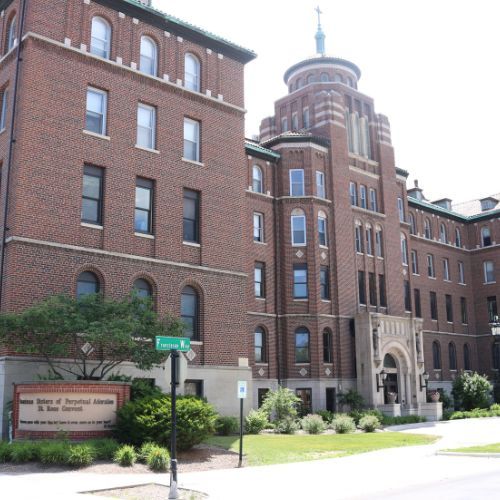
St. Rose Convent, La Crosse, Wisconsin
St. Rose Convent in La Crosse, Wisconsin, serves as the spiritual heart and administrative center of FSPA, housing three chapels, administrative offices and providing a home for some of the congregation's retired sisters. Among the chapels is the Mary of the Angels Chapel (Maria Angelorum), which welcomes visitors from La Crosse and around the world, and the Adoration Chapel where the sisters have prayed daily since 1878. St. Rose Convent is a popular site on the list of historical sites in La Crosse. Its name is derived from St. Rose of Viterbo.
The first St. Rose Convent building was erected in La Crosse in 1871. As the number of sisters increased, additions were constructed to meet the needs of the growing community.
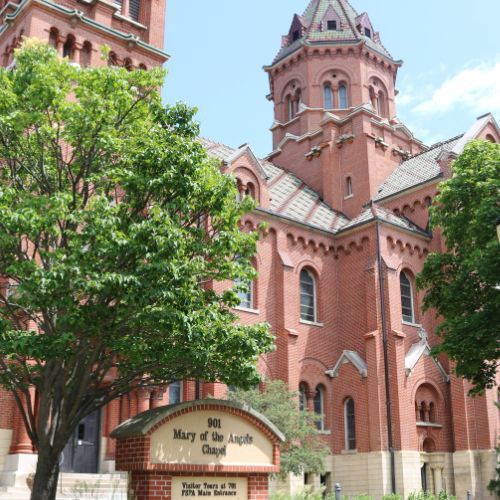
Mary of the Angels Chapel
The present Mary of the Angels Chapel (Maria Angelorum) took three years to build and was completed August 2, 1906. It serves Franciscan Sisters of Perpetual Adoration as the congregation's central place of prayer.
The Ninth Street section of the St. Rose Convent building was reconstructed in 1924 after a fire had destroyed a major portion of the building in 1923. A part of the Market Street section that escaped the fire still stands. The chapel was not touched by the fire.
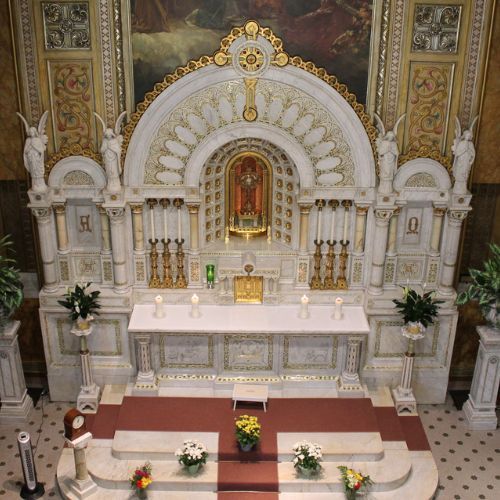
Perpetual Adoration Chapel
As the “motherhouse,” or home, for Franciscan Sisters of Perpetual Adoration, St. Rose Convent serves as the location for perpetual adoration of the Blessed Sacrament (Adoration Chapel, pictured), the center for congregational administration, the center of formation, home for some retired sisters, and the site of the Franciscan Spirituality Center.
St. Rose Convent is especially noted for its hospitality as sisters there share liturgical celebrations, prayers, tours, and meals with numerous guests.
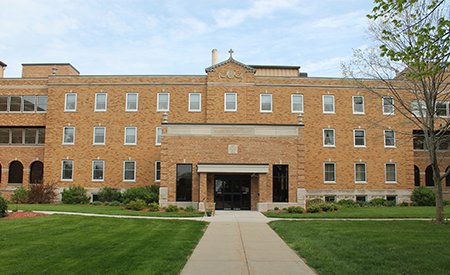
Villa St. Joseph, La Crosse, Wisconsin
Villa St. Joseph served FSPA as a skilled-care retirement home through 2023. The Villa is located on St. Joseph Ridge, 11 miles east of La Crosse on Highway 33. The land that surrounds the Villa was initially purchased as a farm to produce food for St. Rose Convent and St. Francis Hospital. Villa St. Joseph convent was dedicated in 1898. Today, the land surrounding the building is used for education and also houses three hermitages managed by the Franciscan Spirituality Center.
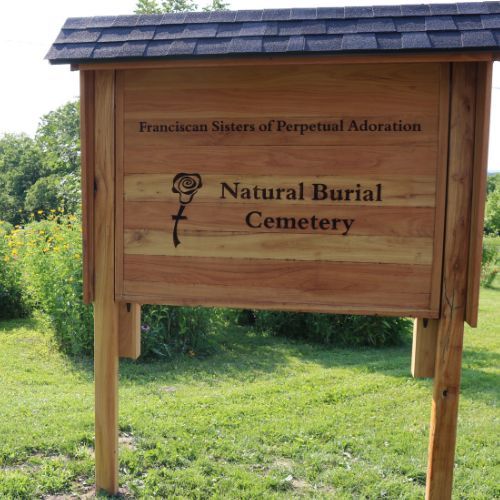
Natural Burial Cemetery
As Franciscans we recognize the beauty and oneness of all creation knowing that all we do affects everyone and everything. Natural burial is a way to honor the sacredness of our Sister Earth as well as the natural cycle of life and death. Our sisters have the opportunity to choose a natural burial. Those who choose this option will be buried on FSPA land on St. Joseph Ridge, La Crosse, Wisconsin, in a designated cemetery site undergoing restoration to native prairie grasses and flowers.
To help sisters discern this option and share information with their families, we created an informational brochure that includes links to additional resources for individuals interested in natural burial.

